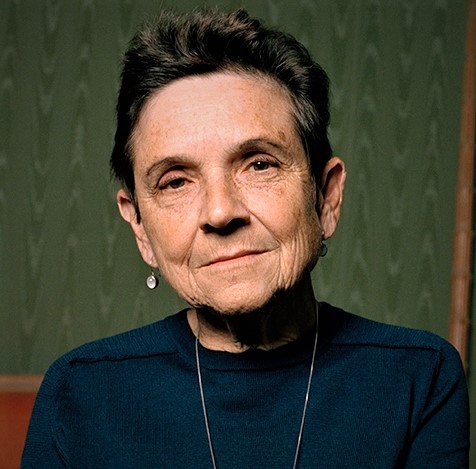Sunday
While I don’t think Adrienne Rich’s “Final Notification” was written as an Advent poem–although Rich was raised Episcopalian by her mother, her father was Jewish and she self-identified as a Jew– it works as one. Granted, the poem is deliberately obscure and you are free to disagree. If this were one of my student essays, I would mark “vague referent” every time she uses the word “it.” The poem, however, invites readers to provide their own noun. So imagine, for “it,” substituting “God’s presence,” which entered humanity through the medium of Jesus.
As Rich tells us, “it will take all your thought/ it will take all your heart, / it will take all your breath.” Or in the words of Jesus, “You shall love the Lord your God with all your heart, and with all your soul, and with all your mind.”
There are, to be sure, other candidates for the pronoun, including “death” and “love.” But they too hint at some form of all-encompassing fulfillment. In any event, the poem points towards final transcendence.
Final Notification
By Adrienne Rich
it will not be simple, it will not be long
it will take little time, it will take all your thought
it will take all your heart, it will take all your breath
it will be short, it will not be simple
it will touch through your ribs, it will take all your heart
it will not be long, it will occupy your thought
as a city is occupied, as a bed is occupied
it will take all your flesh, it will not be simple
You are coming into us who cannot withstand you
you are coming into us who never wanted to withstand you
you are taking parts of us into places never planned
you are going far away with pieces of our lives
it will be short, it will take all your breath
it will not be simple, it will become your will
The image of an occupied city reminds me of John Donne’s famous “Sonnet 14.” In it, Donne laments that he has allowed Satan to usurp his mind (“I, like an usurp’d town to another due”) and he prays for God to liberate him and occupy the city in turn. “Batter my heart three personed-God,” he begs and then later, “That I may rise and stand, o’erthrow me, and bend/ Your force to break, blow, burn, and make me new.”
There’s a nice contrast between a city being occupied and a bed being occupied, the first denoting conquest, the second comfort and safety. Allowing Christ to enter our lives will indeed take our breath away, but it is also what we always wanted. While we may resist surrendering ego, in the end “you are coming into us who never wanted to withstand you.”
The “final notification” assures us that becoming one with the divine will become our will.


